Zagreb Association of Caterers: 100 Locations Opening Monday to Protest Measures
January 30, 2021 - Owners of catering objects and gyms in Croatia plan to continue putting pressure on the Headquarters. Franz Letica, president of the Zagreb Association of Caterers, revealed that over 100 locations would open in protest on Monday, February 1.
Dissatisfaction with the measures has been expressed by many caterers and gym owners in Croatia. Among them are those who are seriously considering opening their facilities on Monday, February 1, even though they could receive hefty fines, reports RTL.
For example, one fitness center in Dugo Selo has not been open for two months, but it will open its doors to exercisers on February 1, despite the ban.
"We are opening because the measures are illogical, unequal for everyone and we claim that we in gyms and fitness centers, recreation centers can mostly control the measures and our members because no one from the road can break into our training," said the owner of the Spartak Fitness Center, Alen Preldžić.
The owner says he is well aware of the fines, which amount to up to 70,000 kuna.
"We are aware of draconian fines, but I don't think there are any others now. How will they be charged when we have 0 kuna in the account," Preldžić said.
Some caterers will protest the Headquarters, with whom they say they have not communicated for months. Others, like caterer Dražen Biljan, will not participate in disobedience but says he understands his colleagues.
"We do not condemn, we do not encourage, but we can understand our colleagues who are so desperate that they are thinking about all sorts of options," said Biljan.
The citizens, however, seem divided.
"I think that then the owners of cafes and guests would be responsible for that, there would be penalties for everyone. I am not really for that," Emma thinks.
"As for the opening, I don't know who is smart at the moment, but I think people are desperate and want to do something, and this has been going on for a year," Iven said.
"To open up on their own? I am for respecting law and order; that's how I was raised," said actress Maria Sekelez.
Those writing the measures hope others won't rebel.
"I still hope that this will not happen. The epidemiological experts in the preparation of this decision has very clearly set priorities that relate not only to this situation but also of a principled nature," said Chief of Civil Protection Headquarters, Davor Božinović.
The Voice of Entrepreneurs Association had a meeting Friday morning and devised a plan to continue putting pressure on the Headquarters.
"At the moment, the idea is to organize one action next Wednesday. That protest action would be for everyone - for cafes and all fitness centers, and for all those who are closed. For all those who have a big drop in traffic and for all those who show solidarity with entrepreneurs and with this situation we are all in together," said a representative of the Voice of Entrepreneurs, Maruša Stamać.
After the police wrote 30 fines for a nightclub in Zagreb's center, the Nightclubs and Bars Initiative have not stayed quiet.
"We disapprove of violating measures, but we are aware that it has become a matter of survival. We are also witnesses that the Constitution guarantees that we are all equal before the law, so the owner is put in prison for non-compliance with the measures, and all this was recorded and made public. The party organizers in KB Dubrava just had to apologize to the Croatian public," explained Domagoj Petričević from the Nightclubs and Bars Initiative.
Croatians will not legally sit in cafes until at least February 15, and on Monday, we will see if Croatia really follows the Italian and Czech scenario. Recall, these two countries were the first to start this year with riots, protests, and opening by force.
There are many meetings in front of the caterers, most of them will be about Monday and how some of them will open their doors by force.
Franz Letica, president of the Zagreb Association of Caterers, revealed what this weekend will look like for caterers and how they are preparing from February 1.
"Tomorrow at 11 am in one of the shopping malls, we will have a meeting, and the reason is the illogical existing measures. Schools were open, and they are one of the primary sources of infection, and bars are not, so it pulled us together to act and hold a meeting this weekend," said Letica.
They will agree on the details on Saturday. Letica confirmed that his colleagues are aware of the measures and penalties they could encounter if they open by force on February 1.
"So far, there are 103 locales in Zagreb that have confirmed their opening," said Letica.
He confirmed that everything would look like in the good old days.
"Music - waiters, a good afternoon, please. Like in the good old days," Letica said.
The Voice of Entrepreneurs Association announced that another protest would be held on Wednesday.
"We support all actions and dissatisfaction because this is, we hope, a post-pandemic time that should bring some openings. It is not normal that we have been in such quarantine for almost two months that they have almost restricted our movement," Letica concluded.
To read more about COVID-19 in Croatia, follow TCN's dedicated page.
Hercegovac Begs Cro PM 'Open Borders So I Can Send My Wife To Her Mother'
January 29, 2021 – Lockdown is apparently taking a toll on one Hercegovac. The man from Široki Brijeg wrote to Croatian Prime Minister Andrej Plenković and begged him to reopen the borders between Croatia and Herzegovina so he could eject his wife from the family home for a month and send her to his mother-in-law's
The message from Hercegovac Ante Zovko (Ante Marinkov) was reposted on the Facebook page Imocki crnjaci where it picked up some 3 thousand likes in less than 6 hours.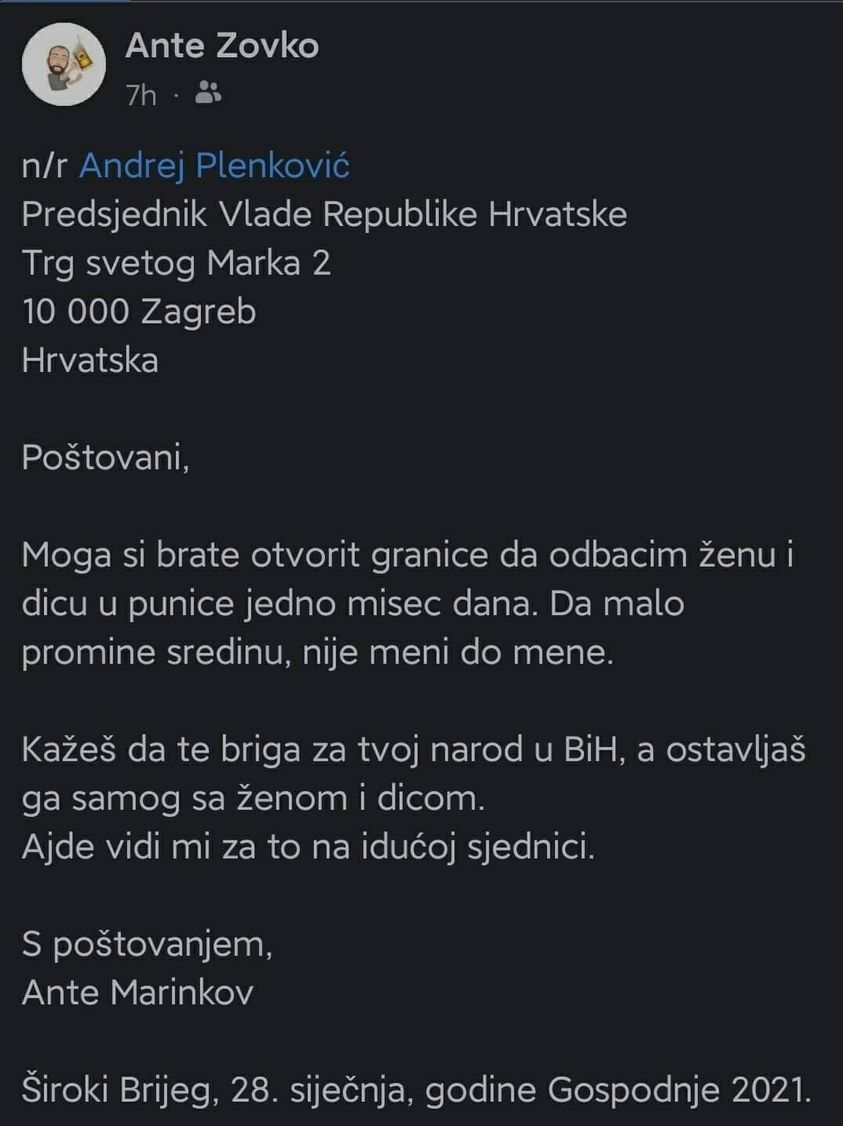
The town, Široki Brijeg, where this particular Hercegovac (a man from Herzegovina) lives is just 35 kilometres from the border with Croatia. Lots of Croatians live in this area, including this Hercegovac, his wife and his child. But not, it would seem, his wife's mother, who apparently lives in Croatia.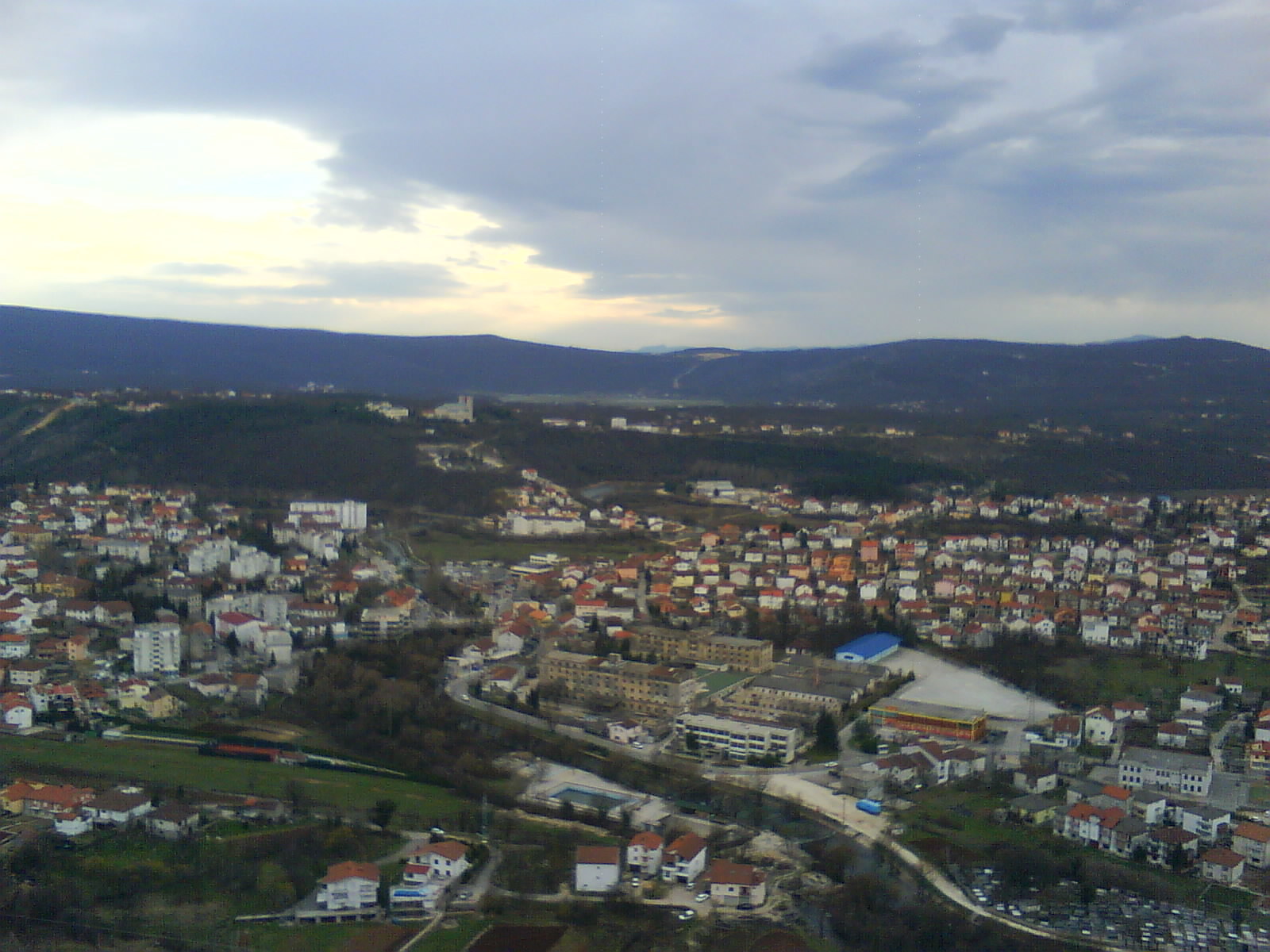 Široki Brijeg in Herzegovina, around 35 kilometres across the border from Croatia © Anto (talk)
Široki Brijeg in Herzegovina, around 35 kilometres across the border from Croatia © Anto (talk)
The Hercegovac's reason for wishing to eject his wife and child for a month was to change up the atmosphere for a time. One presumes he was not being entirely serious with his request.
The Hercegovac is not the first man to seemingly reach the end of his tether while restricted to staying in the family home. In April 2020, after just one month of being housebound, a man from a village near Osijek in Slavonia left his wife in the family home and went to live nearby in a tent.
Speaking anonymously at the time, the man's neighbour told the local SiB.hr news portal the couple have been happily married for 30 years. But, it seems the pressure of being around each other so closely during the lockdown was too much even for their strong union.
The neighbour was happy to report that since his friend pitched his tent in the nearby locale, relations between the man and his wife had actually returned to their usual levels of warmth and friendliness. The wife even came regularly to visit her husband in his tent. © John Waring
© John Waring
"My neighbour has been in his tent for a few days now,” he told the portal back in April. “He puts up a table and chairs in front. Occasionally our other neighbour comes over to drink some rakija (with him). I visited him too.”
The neighbour said his friend had quit the family home due to boredom more than anything else. Even after being happily married for 30 years, being around each other 24 hours a day was apparently just too much.
Perhaps in this more chivalrous response from the Slavonian man, Hercegovac Ante Marinkov could take some inspiration? After all, it's surely easier if one person departs from his family home in order to change the atmosphere than if two are forced to leave. Ante should find a nice spot in the fields nearby – not too close – and simply pitch up a tent. Problem solved! If he's lucky, his wife might come to visit bringing rakija.
VIDEO: Prohibition-Era Nightclubbing Zagreb, 33 Fined
January 29, 2021 – It has all the ingredients of a movie about Al Capone or Lucky Luciano in 1920s Chicago - illicit, hidden drinking dens, dancing girls, bullets, guns, gangsters and a police raid, only with a neon lighting scheme that remains fashionable strictly in Balkan clubs. Welcome to Prohibition-era nightclubbing Zagreb
It has all the ingredients of a movie about Al Capone (main picture) or Lucky Luciano in 1920s Chicago - illicit, hidden drinking dens, dancing girls, bullets, guns, gangsters and a police raid, only with a neon lighting scheme that remains fashionable strictly in Balkan clubs. Welcome to Prohibition-era nightclubbing Zagreb.
Croatian police have issued a video of a raid they undertook to shut down a Prohibition-era nightclubbing party in Zagreb. Inside the venue, they found 33 persons. None were wearing masks.
One young man at the party was caught with a pistol and bullets. If it weren't for the police's modern helmets with visors and the Balkan-cool neon lighting, you could be forgiven for thinking you were watching Eliot Ness and The Untouchables busting an illegal speakeasy. All cafes, restaurants, bars and nightclubs are supposed to be closed at the moment under measures adopted to counter the spread of Coronavirus.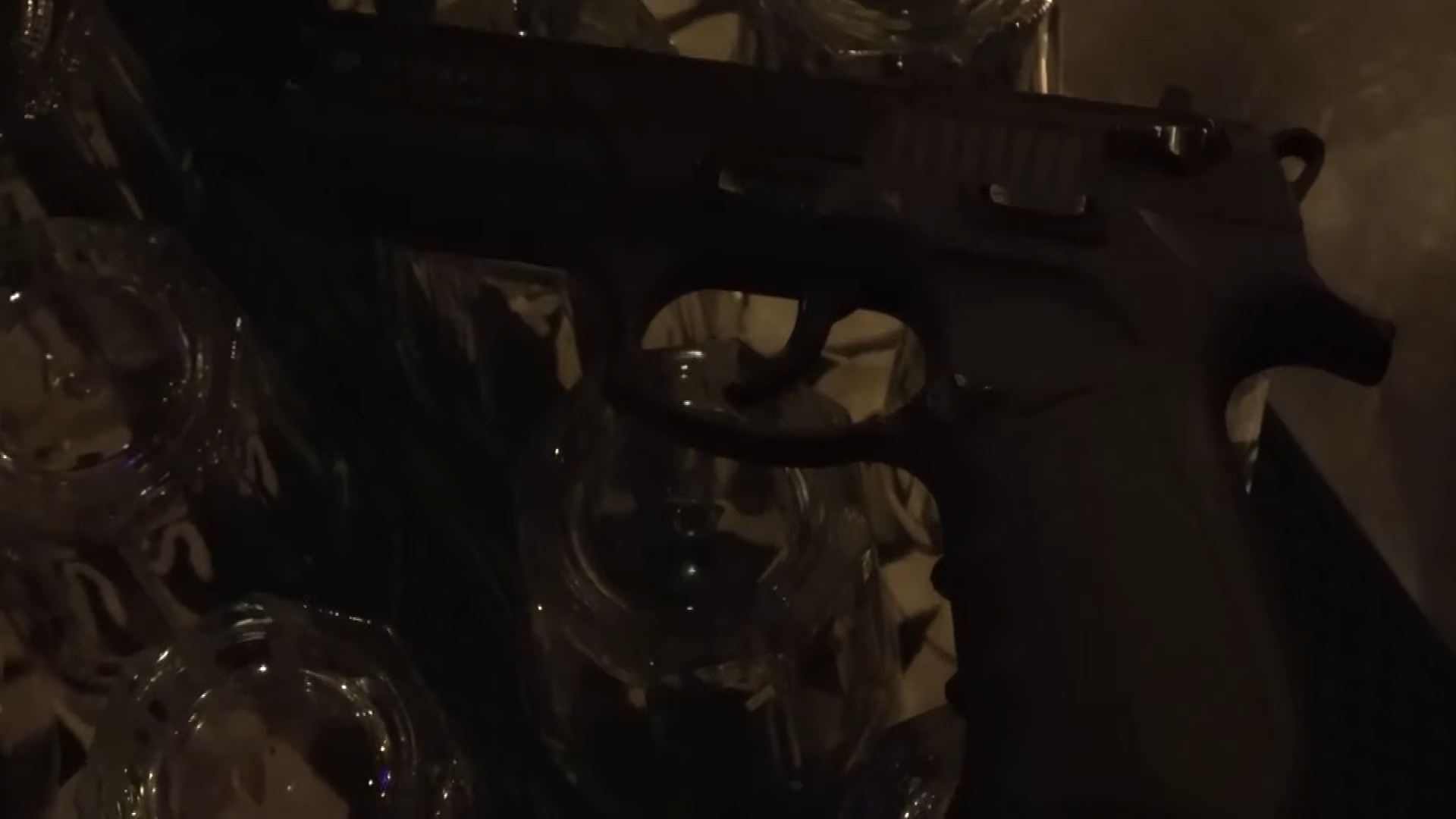 The pistol found by police while conducting a search on a 24-year-old at the club - Youtube screenshot
The pistol found by police while conducting a search on a 24-year-old at the club - Youtube screenshot
In the original era of America's Prohibition, under which the production, import, transportation, and sale of alcoholic beverages was illegal, Al Capone ultimately received an 11-year prison sentence for tax evasion and Lucky Luciano was looking at 30 - 50 years until he struck a deal and agreed to be deported to Italy. Thankfully, there are no mafia murders connected to this tale of Prohibition-era nightclubbing in Zagreb.
In addition to the video, the police released a statement about the prohibition-era nightclubbing raid:
"During the operation, a total of 33 people were found, identified and checked in said facility. No coercive measures were used during the actions of the police officers. 33 people were found not wearing protective masks, which is why the police officers issued them three Notices of Misdemeanor and 30 fines were collected for violations of Article 47, paragraph 2, item 9 of the Law on the Protection of the Population from Infectious Diseases.
Furthermore, for one of the caught persons, a 24-year-old was searched and a gas pistol was found in his possession, for which he was issued a Mandatory Misdemeanor Order for the offence under Article 27, paragraph 2 of the Law on procurement and possession of weapons by citizens. Bullets found by the police at the prohibition-era nightclubbing scene in Zagreb
Bullets found by the police at the prohibition-era nightclubbing scene in Zagreb
Also, officials of the Directorate of Civil Protection found violations of epidemiological measures contrary to the Decision on necessary epidemiological measures restricting gatherings and introducing other necessary epidemiological measures and recommendations to prevent the transmission of Covid-19 through gatherings. Due to performing catering activities contrary to the decisions of the Civil Protection Headquarters, officials of the State Inspectorate, Tourist Inspection, Zagreb Regional Office found a violation of Article 9A of the Catering Act and issued an oral decision banning the work, and the facility was sealed for at least 30 days. Misdemeanor proceedings will be initiated against the legal and responsible person.
As part of the criminal investigation, the 45-year-old owner of a catering facility was taken to the official premises of the Zagreb Police Administration for a criminal investigation on suspicion of having committed the criminal offence of "Spreading and Transmitting an Infectious Disease" under Article 180. He will be handed over to the custody supervisor after the criminal investigation is completed”
Prohibition in the United States took place in a 13 year period between 1920 and 1933. It is highly unlikely that the bars and cafes of Zagreb will be asked to remain closed for such a length of time. This is not the first instance of Prohibition-era nightclubbing taking place irrespective of epidemiological guidelines in Zagreb. In late November 2020, Croatian media (including Juarnji List) widely reported on police raids that took place at two Zagreb venues, even though measures adopted in the fight against the pandemic were at that time more relaxed.
Božinović: There Will Be No Major Relaxation of Epidemiological Restrictions
ZAGREB, 25 January, 2021 - The national COVID-19 response team is considering the relaxation of the ban on gatherings as of February 1 but there will be no major relaxing of epidemiological restrictions, the team's head, Minister of the Interior Davor Božinović said on Monday, ahead of the adoption of a new set of measures.
"There will be no complete lockdown in Croatia as in some other European countries but there won't be any major relaxation of the restrictions either. We need time to see what happens with the new virus strains," Božinović said.
The current restrictions are in force until the end of this week and before they expire, a new set of measures will be made known, with three restrictions regarding commerce, borders and public transportation likely to be extended, while the relaxation of the ban on gatherings is being discussed the most.
"In the current situation, there is not much room for a strategy of major relaxation of the restrictions. The worst thing would be to open something suddenly and then to have to close it down again," he said, noting that statistics on the number of new infections were better and better but that those number were not insignificant.
Future decisions will be impacted by the spread of the new virus strains which have already appeared in Croatia's neigbourhood, by the slowing down of the vaccination process and the fact that we are still in the winter period, he added.
As for plans by cafe and restaurants owners to stage a protest against anti-epidemic measures, Božinović said that protests were a democratic instrument but that he did not know against whom and what they would protest as restrictions had not been introduced with the intention of making someone's life harder.
"We all hope that as the number of new infections declines and vaccination proceeds some kind of normal life will be restored but it is clear that it won't happen tomorrow," he said.
Markotić: We can't be sure mutated viruses are not already in Croatia
The head of Zagreb's Dr Fran Mihaljević hospital for infectious diseases, Alemka Markotić, said that the situation regarding virus mutation was being seriously followed and that one could not be absolutely sure that the mutated viruses had not already appeared in Croatia.
"There are for the time being no hotspots with an extreme increase in the number of new infections, which is an indirect indicator that the mutated virus, even if it has arrived in Croatia, is not replicating significantly. There will be more mutations in the future but they need not necessarily be bad for humans. Mutations more often harm the virus than they increase its contagiousness. The situation will be followed," said Markotić, noting that existing PCR tests can detect the British virus strain.
Capak: Croatia will not engage in bilateral talks with vaccine producers
Croatian Public Health Institute (HZJZ) head Krunoslav Capak said that Croatia was registering a 20% decrease in the number of new infections in the last seven days compared to the week before.
A total of 69,984 persons have been vaccinated and 11,907 have been revaccinated, he said.
For those who need a second shot, vaccination will be postponed for a week due to lack of the vaccine but that will not affect the quality of vaccination or immunity as the second shot can be received up to 42 days after the first one, he said.
He noted that Croatia did not plan to hold bilateral talks with vaccine producers as a common approach had been agreed at EU level but stressed that in the next four weeks Croatia would obtain 14 fewer boxes of the vaccine or 13,650 fewer doses.
Moderna should deliver 4,800 doses on Sunday, and in early February 10,800 doses should arrive for which there is no information that they could be delayed, Capak said.
"AstraZeneca has been instructed by the European Commission today to respect the deadlines and the agreed quantities better, so we hope that after today's videoconference we will receive good news. The first delivery should be in mid-February, of 44,000 doses," he said.
"We are thinking about what to do if small deliveries continue but we believe that larger quantities will arrive. Much of the effort is now directed at making the pharmaceutical industry change the drastic reduction in vaccine deliveries for all EU countries," he said.
So far 284 suspected side-effects have been reported for the Pfizer vaccine, including 16 allergic reactions requiring administration of drugs and two requiring administration of adrenaline.
There have been 10 reports of side-effects for the Moderna vaccine, and the side-effects have all been mild.
The current 14-day incidence in Croatia is 216 new infections per 100,000 people. It is the highest in Sisak-Moslavina County, with 385.6 cases and the lowest in Istria, with 92.9 new infections per 100,000 people.
45 People With Fake PCR Tests Detained At Croatian Border In One Weekend
January 19, 2021 – 45 people tried to enter Croatia with fake PCR tests this weekend alone. They were caught by Croatian police, detained at the border and reported to the State's Attorney office. If found guilty, each faces a maximum penalty of three years in prison
Some 45 people tried to enter Croatia through the borders of one county with fake PCR tests this past weekend.
Travel from Bosnia and Herzegovina into Croatia currently requires the production of a negative PCR test or a doctor's certificate proving you have successfully passed through a COVID-19 infection in recent months.
Since the ban on entering Croatia from Bosnia and Herzegovina without a negative PCR test was introduced, fake PCR tests are increasingly being forged. Border police and customs officers at crossings in Brod-Posavina County have met many people trying to cross the border with fake PCR tests. But, this weekend a new record number of forged tests were found on the county's border crossings.
According to a statement from the Brod-Posavina Police Department, as many as 45 attempts to enter the country with fake PCR tests were discovered on Saturday and Sunday.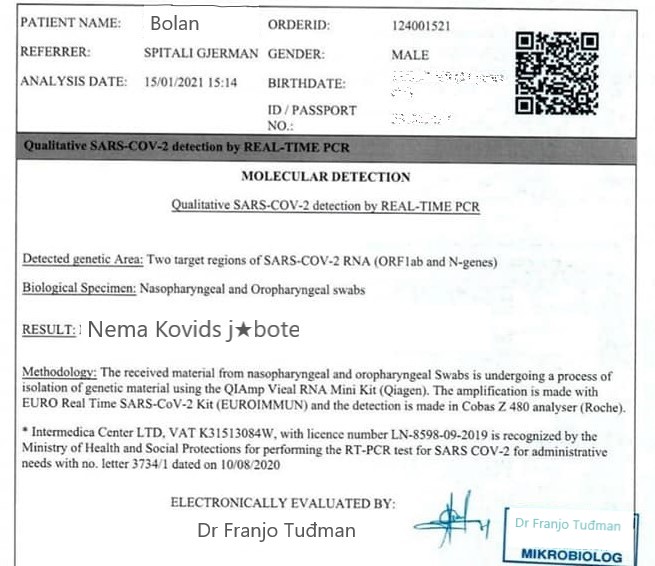
"At the Stara Gradiška border crossing, police officers determined that 43 persons, mostly citizens of Bosnia and Herzegovina, presented fake PCR tests issued in BiH at the border control. At the Slavonski Brod border crossing, two people were registered who gave forged tests," the Brod-Posavina police reported.
Police officers file criminal charges against all those suspected of committing the criminal offence of forgery of a document with the Municipal State Attorney's Office in Slavonski Brod. If found guilty, such persons face up to three years in prison.
The overall number of people detained on Croatia's border with fake PCR tests this weekend could actually be higher - the figures of 45 persons detained with fake PCR tests were released by the police of just one county in Croatia - Brod-Posavina County. A further eight Croatian counties exist along the border with Bosnia and Herzegovina. Each has border crossings between the two countries.
Civil Protection Headquarters: More Changes at Croatian Borders, Measures in Force Until January 31
January 15, 2020 – At today's press conference of the National Civil Protection Headquarters, Interior Minister Davor Božinović explained the changes at Croatian borders and commented if there would be any easing of measures from February 1, 2021.
The National Civil Protection Headquarters held a press conference on the current epidemiological situation in the country.
In the last 24 hours, 715 new cases of the SARS-CoV-2 virus were recorded, and the number of active cases in Croatia today is 4653. Among them, 1855 patients are in hospital, of which 160 are on respirators. Thirty-three people died. There are currently 18,048 people in self-isolation.
Krunoslav Capak, Director of the Croatian Institute of Public Health, explained the situation with testing and the incidence rate.
"5335 people were tested. A week ago, we had 1098 positive cases. The total number in the first five days of this week is 3819, 23 percent less than the first five days of last week. The incidence is below 300 – 288.8 in the last 14 days. The lowest incidence is in Dubrovnik and the highest in Međimurje. Croatia ranks 7th in the EU in terms of seven-day incidence," Capak said. The share of positive cases in those tested is 16.4 percent.
Decisions about border crossings
Davor Božinović clarified the decision on the temporary ban on restricting crossing Croatian border crossings.
"Croatian citizens can stay in neighboring third countries for up to 12 hours in case of urgent and necessary reasons. These are rare situations when there is no other choice for people. For example, funerals, absence of public transport, people in transit, students, going to the doctor, purchasing medicines, etc.," said Božinović.
He added that the decision on passengers coming from the area on the Croatian Institute of Public Health's special list applies to everyone – to their citizens and citizens of all countries coming from those countries. These are passengers from the UK and South Africa. It is valid that they can enter Croatia only with a negative coronavirus test and be quarantined for 14 days. The quarantine can be shortened to 7 days in case of another negative test.
Božinović and Capak on easing measures
As Index found out earlier, the easing of epidemiological measures is possible as early as February 1, but provided that the number of newly infected people continues to fall, i.e., the share of new cases in the total number of daily tests continues to fall. The first in line for easing the measures would be gyms and terraces of cafes and restaurants. Also, there is almost no chance that restaurants and cafes' closed spaces will open from February 1st.
At a press conference today, journalists asked Božinović if there would be any easing of measures from February 1.
"The fact is that only this week, we decided to extend the measures, which last until January 31, 2021. We will continue to work as before: daily monitor the Republic of Croatia's epidemiological situation and the countries around Croatia, EU countries. It is not in our interest to defend anything other than what is estimated to be due to the virus's spread. In that sense, we will take all factors into account a few days before this decision's expiration. This is wintertime. Everything is being done to achieve an effective way to fight the epidemic - ventilation, masks, keeping distance, etc. We are constantly thinking about measures, and we will continue to do so, but today it is not realistic to announce something, and we will not do it. We have a little more than two weeks to monitor the situation. No one in this epidemic is an island," said Božinović.
Božinoć added that when adopting measures, they must also consider the winter weather so as not to overload the health care system. Asked whether these measures would be in force until the spring, Božinović said:
"I don't know why you came to that conclusion. I just said that we would have meetings with other departments, ministers in the Government a few days before the expiration of this decision."
They monitor all important parameters every day and will make a decision based on them. It is too early to announce anything, they said.
"It is evident to us that these results in reducing the number of newly infected consequences are fewer contacts, fewer gatherings indoors, fewer private gatherings, and celebrations. It is the foundation of the fight against coronavirus, especially in winter conditions. This is easier to implement in some situations and more difficult in some others. There are activities for which this is not a particular problem, and for some, it is. We are sorry for all who suffer in such a situation. We can not let the health system not respond to people's needs when it comes to Covid and other diseases."
Asked whether individual sports would be allowed, Krunoslav Capak replied: "We are analyzing the situation. We cannot announce the easing of measures. Some sports federations have sent inquiries and letters. We are responding to them and communicating with the Ministry of Sports."
Krunoslav Capak said that there had been no case of influenza infection in Croatia. Alemka Markotić pointed out that no new strain of coronavirus had been recorded in Croatia, which had been noticed in Great Britain, Ireland, and South Africa.
Sources: Index, Jutarnji list
What Kind of Life Awaits Croatian Anti-Vaxxers Who Refuse Vaccination?
December 29, 2020 – The arrival of COVID-19 vaccines in Croatia has been met with much relief by many people. But, not everyone is happy. Conspiracy theorists - those who favour disreputable sources and 'whispers on the wind' to real science - are reticent, some even angry. So, what kind of life awaits Croatian anti-vaxxers who refuse to take the vaccine?
The people who inhabit the lands now known as Croatia have a long history of being pushed around. For this, they cannot be blamed. Greatly outnumbered by the occupying armies of some of the most powerful empires of all time - the Romans, Venetians, Austro-Hungarians and Ottomans - their rebellions against such overlords have been relatively small in number. Their default setting has been to visit the kafana at the end of the day and moan, grumble, gossip - perhaps even plot - against those who make their lives disagreeable.
Croatia was finally freed of its last imposing masters over two decades ago. But, true to form, the grumbling in the kafanas has continued. Except, now that the kafanas are all closed in response to Coronavirus, the moaning has moved almost exclusively to the internet. And, it has reached a shrieking pitch.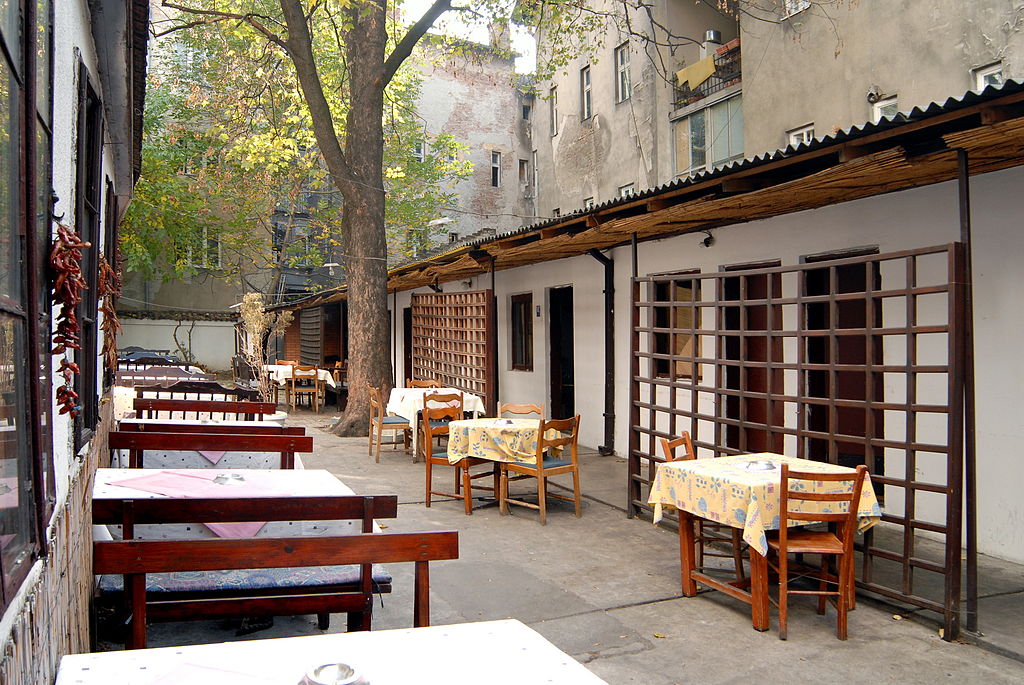
The arrival of COVID-19 vaccines in Croatia has been met with much relief by many Croatians. The news of the first vaccinated citizen, followed by the first vaccinated healthcare workers, was also well received. You can tell this from the overwhelmingly large amount of 'likes' such news generates when posted to social media. These warm welcomers of good news in Croatia could be best described as the silent majority. And, in the same way most Croatians lay subdued for lifetimes under bullying empires, this silent, sensible majority is drowned out by the deafening vitriol of the unhinged within the comments sections underneath.
These arch-moaners appear in the comments on most issues, railing against the increasingly modern ways of the world. On the issue of Coronavirus and the incoming vaccines, it is the Croatian anti-vaxxers who are angrily dominating the discourse.
It appears near pointless to debate with them. They are not ones for science, facts nor reasonable debate. Not for them are the reports of scientific journals, the BBC, The New York Times, The Guardian, Al Jazeera, or The Washington Post. Instead, they cite the most spurious of sources – a website nobody else has heard of, a document written by a friendless doctor from the Texas farming community who has a curiously photoshopped profile picture, a Youtube video made for the same price as a hamburger and narrated by a 17-year-old from the outside toilet. There's no point telling them that the vaccines coming onto the market were actually designed back on January 13, just two days after the Coronavirus genetic sequence had been made public and that it has taken until now to produce them, due to stringent testing on their safety. No. Because for Croatian anti-vaxxers, whispers on the wind, the horoscopes, crystal ball of the fortune-teller and the inescapable stare of Braco are just as reliable - if they're telling you what you want to believe. For whichever lunatic theory you want to adopt, you can look online and you'll be sure to find some crackpot to back it up. The internet is the great leveller for Croatian anti-vaxxers as well as everywhere else - a place where deposed Nigerian royalty who want to put money in your bank account have just as much credence as an 80-year-old media title with a blemishless reputation.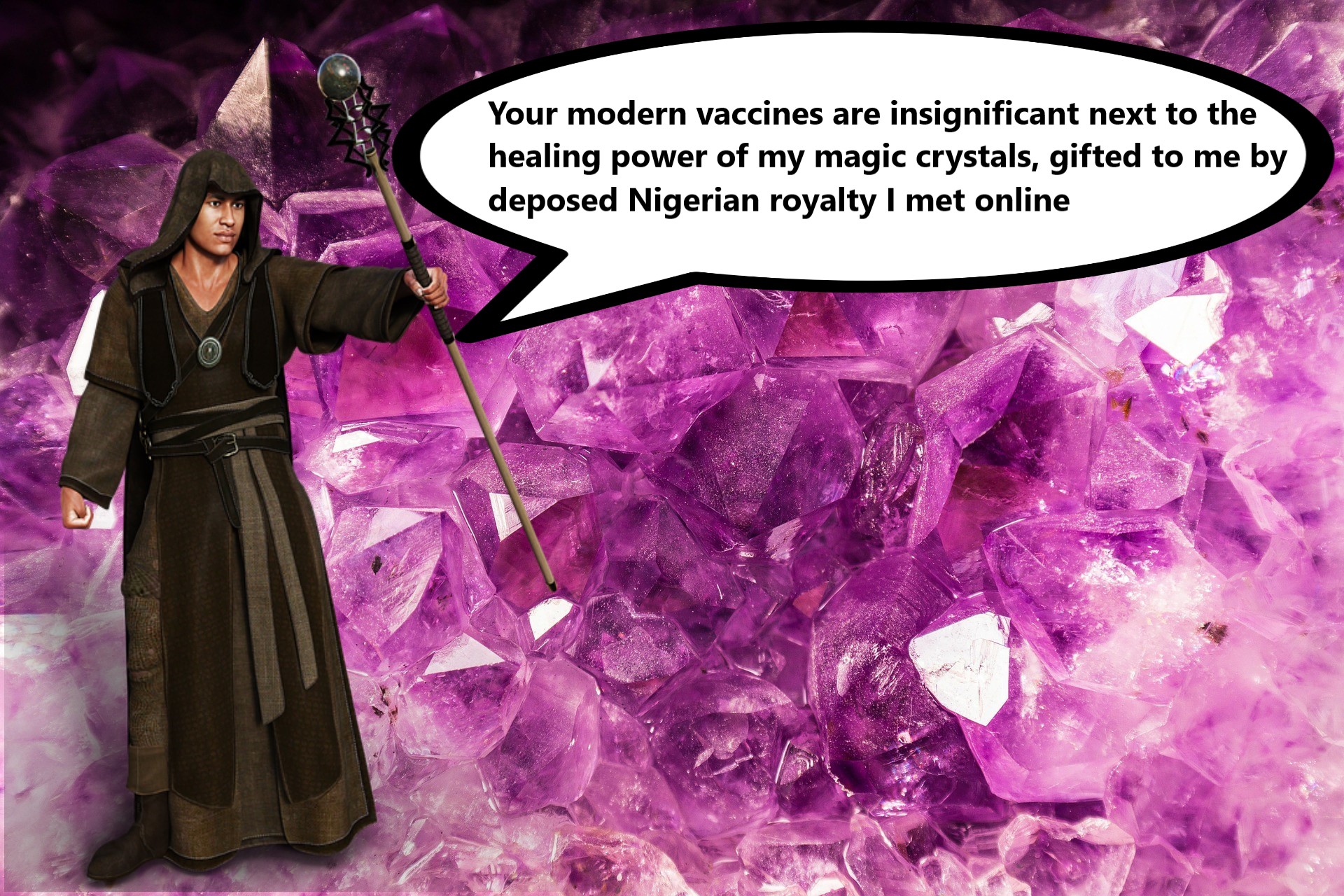
Of course, while life is too short to even debate with anti-vaxxers in Croatia or anywhere else, that's not to say they are undeserving of sympathy. In our recent interview with a doctor working on the Coronavirus frontline in a Croatian hospital, they generously raised an interesting defence of the tin-foil hat brigade - “It's not always the content of the conspiracy theory that appeals to these people as much as it is their inability to accept facts – the truth – because they have little faith in the authorities that are telling them.”
Finding fault in authorities is far from unique to Croatia. Yes, there is a certain amount of kafana moaning and grumbling all over the world, and often for good reason. Politicians are more than aware of this. And, in an era of widespread voter apathy and low voter turnout, where yet another silent majority has the potential so easily to change the names of those who govern, this is exactly why politicians will abstain from making the Coronavirus vaccines mandatory. With things as they currently stand, it is near inconceivable that Coronavirus vaccines will be made compulsory in Croatia or in any other western democracy. Good news for Croatian anti-vaxxers? Well, not quite, because it is highly likely that the private sector will be among the greatest of persuaders for vaccination. It is not unthinkable that we are about to enter a wholly new two-tiered society – the vaccinated and the unvaccinated. And signs of what that life might look like for Croatian anti-vaxxers are not good. They are not good at all.
“Vaccination could become one of the measures that would make it possible to come to events,” Stefan Breitenmoser, general manager of the Professional Association of Swiss Organizers of Concerts, Events and Festivals, told Sonntags Blick in the past week. In Switzerland, vaccination began on Wednesday and it is free. It is not only the entertainment events industry that is considering the measure - the Swiss Football League similarly said it is giving it serious consideration. Professional sports and the events industry have lost billions during the pandemic. The 2021 Olympics hangs on a knife-edge in regards to accepting audiences into its stadiums – it has already been delayed by a year. It is highly conceivable that access to all large events in future will be dependent on proof of vaccination. The National Stadium in Japan was due to host some of the key events of the 2020 Summer Olympics. The whole event has been delayed until summer 2021, in response to the pandemic © Arne Müseler
The National Stadium in Japan was due to host some of the key events of the 2020 Summer Olympics. The whole event has been delayed until summer 2021, in response to the pandemic © Arne Müseler
In an interview on N1 television in Croatia over recent days, epidemiologist Branko Kolarić - a member of the Scientific Council of the Government of the Republic of Croatia - echoed similar thinking. He stated that a list of the vaccinated will be carefully maintained, most likely through some kind of e-documents, and although vaccination will not be mandatory, vaccination will bring some benefits - such as air travel, group gatherings and attendance of concerts and festivals. You are surely not going to see police or soldiers checking your vaccination status at the entry to a dance music festival in Dalmatia. But, it is highly likely that event organisers will insist on proof of vaccination before granting entry. Even if they don't wish to, it is more than conceivable that they would not be granted the necessary licenses nor insurance without assuming such a position.
Another industry that has lost billions in the pandemic is the travel and tourism sector. Little surprise then to have found budget airline Ryanair launching a new campaign of 'Jab and go' over the last few days. The suggestion is crystal clear – get vaccinated, you can come on our planes, we'll allow you to travel. Ryanair will certainly not be the last airline to assume responsibility for vetting passengers' vaccination status. Croatian anti-vaxxers had better be really happy to be here, because international borders may well be permanently closed for them while they remain unvaccinated.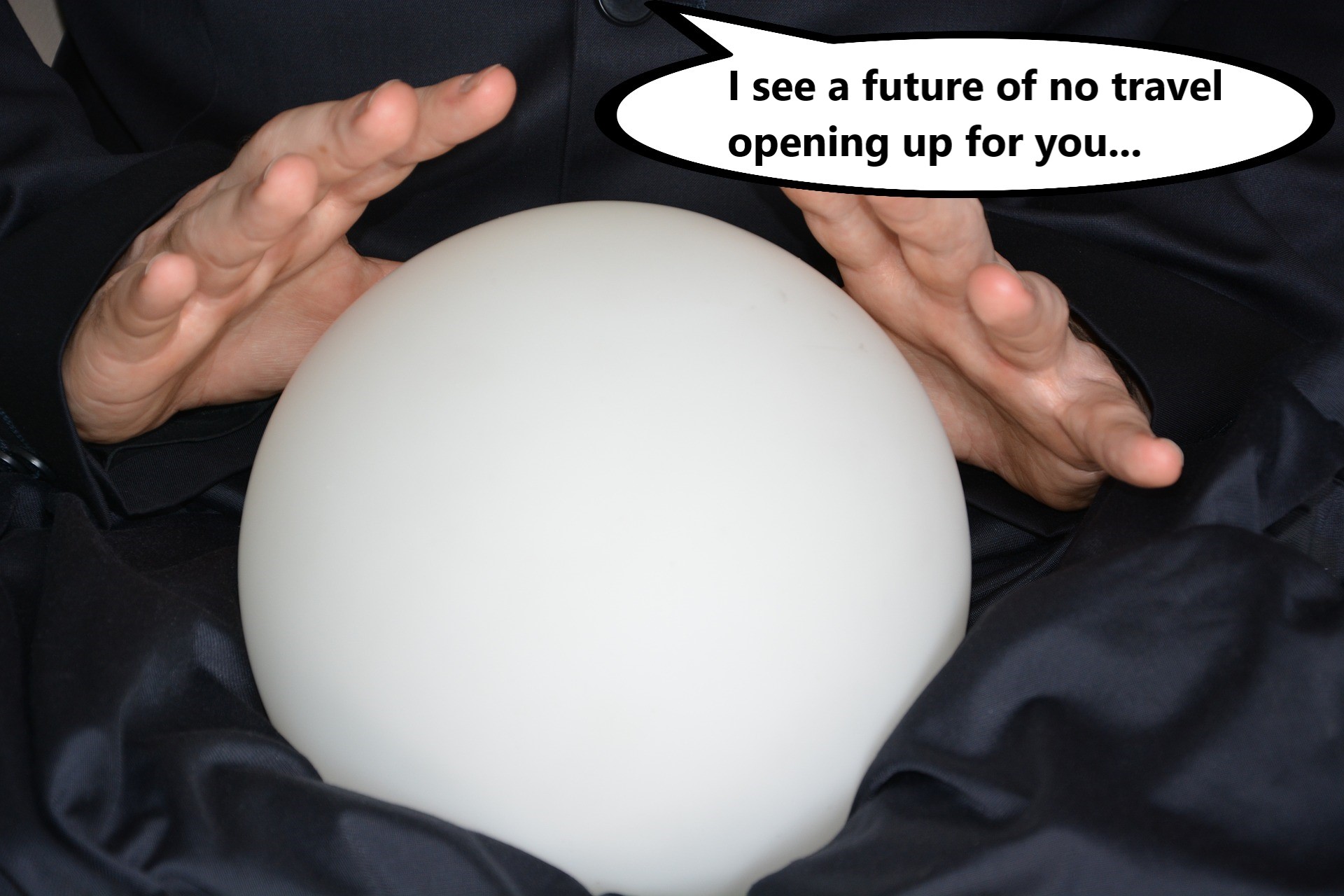
So, a life with no spectating at big sports events, no more large concerts or music festivals and no more international travel is what seems to be just around the corner for Croatian anti-vaxxers. Sounds harsh, unpleasant. But what if it extends to libraries, schools or even hospitals? We don't yet know anything concrete about the lower tier of existence Croatian anti-vaxxers may choose to dwell in. But, it's not where I want to live. Perhaps they'll even be forced to drink exclusively in their own anti-vaxxer kafanas? For sure they'll be easy to identify – they'll be the ones from which the loudest moans are coming.
The views expressed in this article are solely those of the author and are not necessarily shared by Total Croatia News
Croatian Healthcare Workers: Christmas's Forgotten Heroes?
December 28, 2020 – Amidst the difficulties of a second lockdown, a socially distanced Christmas and yet more earthquakes, have we forgotten about Croatian healthcare workers? TCN decided to interview a doctor working on the front line of the fight against COVID
During the first lockdown, it was all about the balconies. Saxophonists, DJs, opera singers – we were entertained on social media by a string of balcony-based stunts that somehow showed resilience, community spirit, humour. Zagreb was no exception. A trend of clapping on balconies in appreciation of healthcare workers passed from country to country and was picked up in Zagreb. After the applause finished, people went back inside. Nothing much had changed. It was a nice enough gesture.
Since the start of summer, no such applause has been heard. Perhaps the release from lockdown gave the signal that the lives of Croatian healthcare workers had also become much easier? That certainly wasn't the case. Though the number of people infected with COVID has grown significantly over recent weeks, Croatian healthcare workers have been treating people sick with COVID since springtime.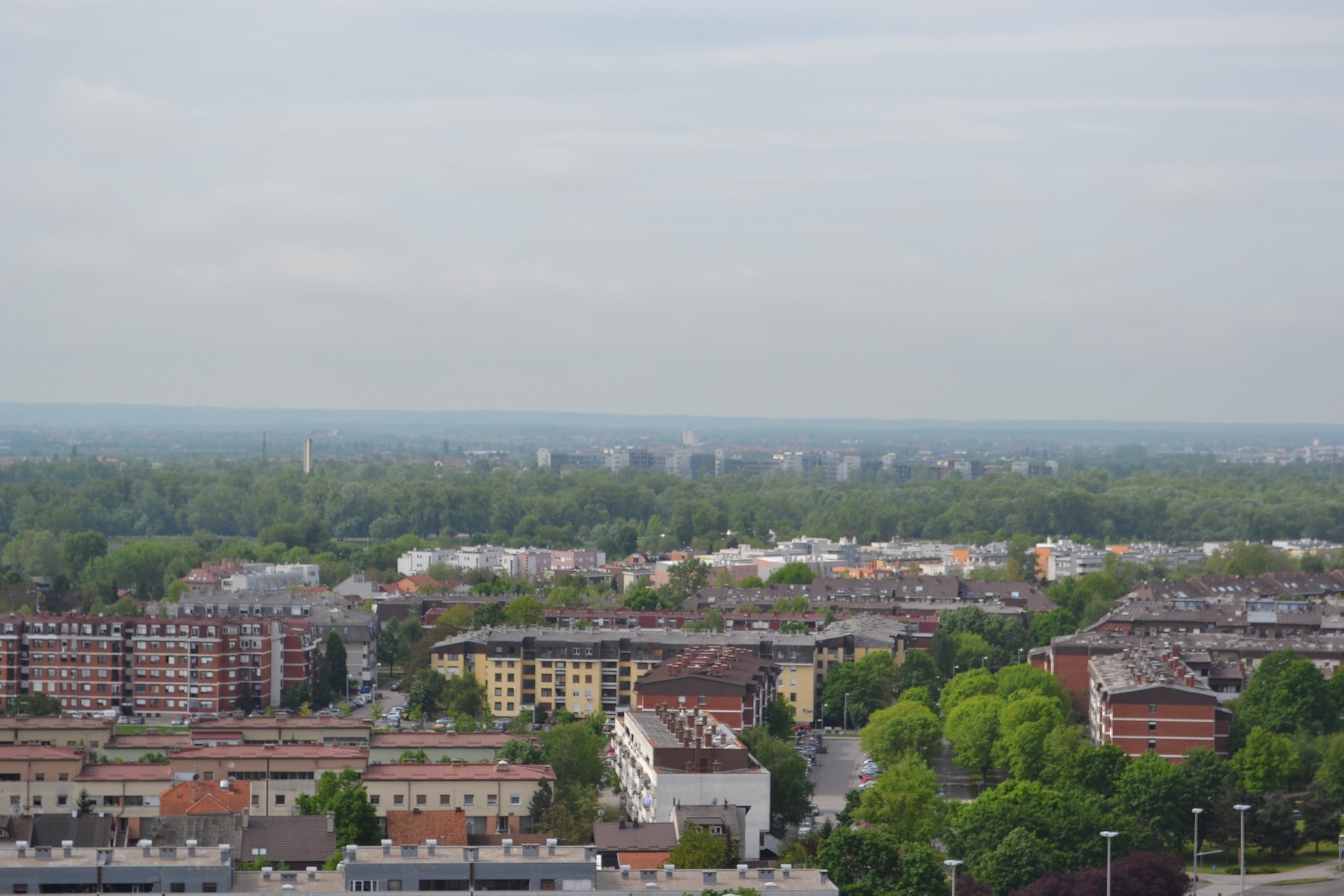
Croatian healthcare workers are currently busier with COVID patients than at any time before. And yet, there are no more trips out onto the balconies to show our appreciation for them. Perhaps it's now too cold outside? Perhaps some aren't aware how busy Croatian healthcare workers currently are with COVID patients? Are we perhaps guilty of taking Croatian healthcare workers for granted? Or, maybe we have simply put Croatian healthcare workers to the back of our minds as we struggle with our own challenges?
Throughout this year, TCN has been pleased to report many instances of generosity and innovation directed towards the fight against COVID. Certainly, not everyone in the country is guilty of forgetting about the Croatian healthcare workers who are on the front line fighting this disease. But, how much impact do these instances have on the general lives of Croatian healthcare workers? What is it like to no longer hear the nightly appreciation from our balconies? And, just what is life like as one of the many Croatian healthcare workers battling COVID in the year of the pandemic? TCN decided to interview one to find out.
The doctor we spoke with is a resident physician, working at a smaller community hospital in the continental part of Croatia. They agreed to speak with us on the condition that they do so anonymously.
Looking back at the first lockdown, we didn't know so much about COVID back then. We didn't know exactly how it was spread, the different manifestations of the disease, what course the disease took, nor what the recovery could be like. I think the government did a really good job of responding to the threat as they saw it. We had a small spike in cases, but that is minuscule to what we have now.
I think people generally did what they were told because they thought it would be temporary and they could see the sense in starving the disease out.
At the hospital, we were at first caught a little off guard with the amount of PPE we had and some other resources that we needed. For ICU and ventilators, we were well equipped.
Some of the residents were given some paid leave. It was important to put human resources into tiers. Croatian healthcare workers were certainly more predisposed to catching the disease, simply because they were around it every day.
After such great early successes, I was surprised that everything was relaxed later on to allow the tourist season to take place how it did, and for events like the Vukovar commemoration. It felt like it was a calculated risk. The lockdown we are now in is perhaps too little, too late. The disease is out there now, wild. The numbers of infected people are significantly higher.
The difficulty with this disease is that people can be infected and have very few or no symptoms at all. They might not know they are spreading the virus. You might not know you're sitting next to someone who has it.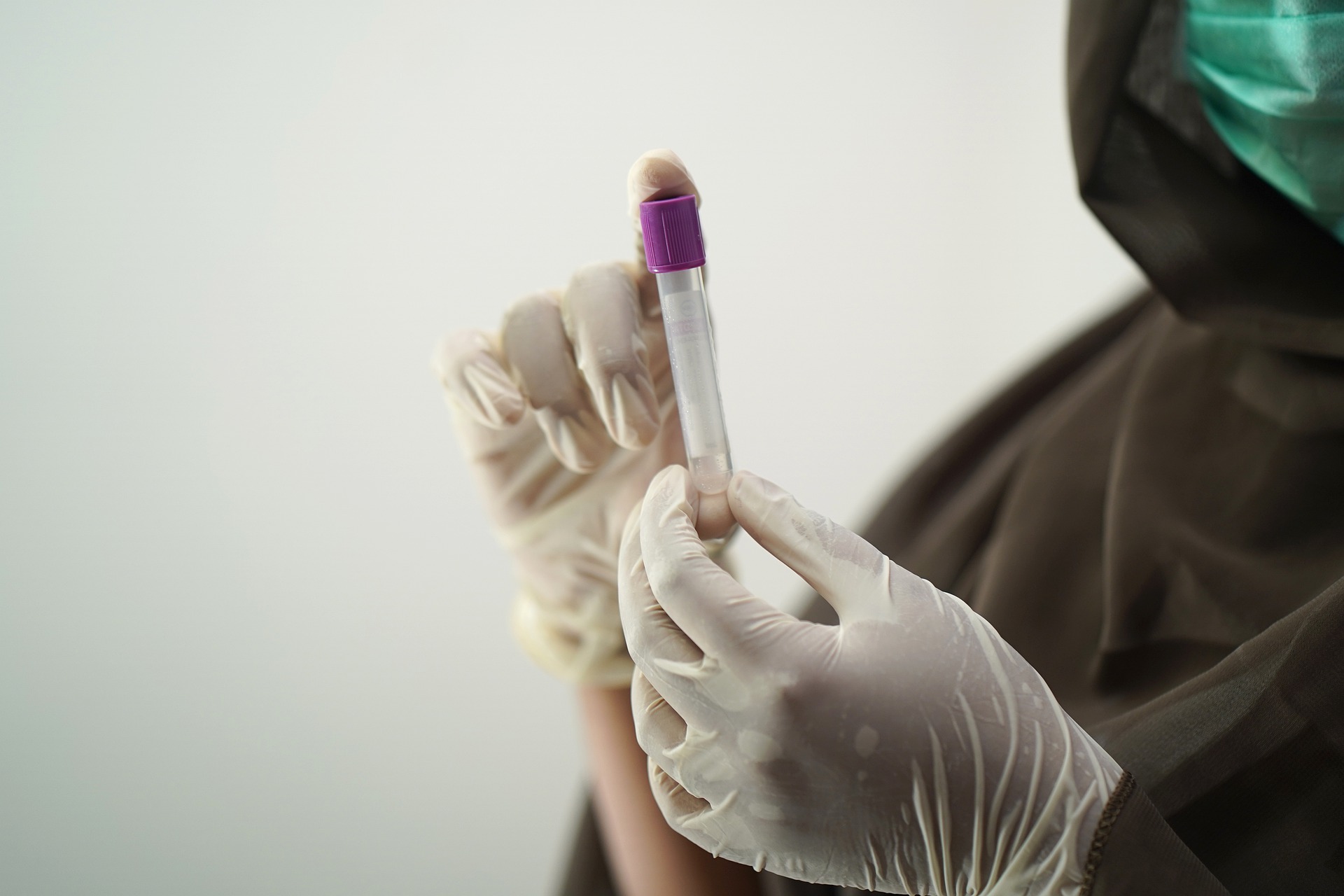
Even though we're not at the centre of care for a major population area or city, we saw cases of the disease almost immediately. Our community hospital services an area containing around 150, 000 people. The first cases in April came from nursing homes – elderly, vulnerable people, many with pre-existing conditions. We were well equipped to handle it. Now, we are stretched on a daily basis. We fill the beds with sick people as soon as we empty them.
We wear masks and PPE all day, all the time. All Croatian healthcare workers in hospitals currently do this. Every patient who comes in, regardless of their symptoms, we treat them as though they are carrying the disease.
A lot of residents like me, who are working towards getting their specialty, go to do some periods of work in larger hospitals in the bigger cities. Now, many of those residents have been called back to their community hospitals – we are short on human resources.
The hospital has had to restructure itself significantly. Lots of doctors have been asked to provide cover in the emergency department. Over half of that area is now fully dedicated to COVID.
What do COVID patients look like in regards to their symptoms? It depends on their age and risk group, but you see people who look like they have flu or bacterial pneumonia, you see people who are in acute respiratory distress. Sometimes they have neurological changes, some of them look like they have had a stroke. Some people who have been infected and have supposedly got over the worst of the symptoms, come back in after a month or two with blood clotting problems – blood clots in the legs, which have a tendency to travel up to the lungs and cause a pulmonary embolism. That's a pretty big medical emergency. Some who have pre-existing heart conditions come in with a heart attack triggered by them catching COVID – it's more complicated trying to revive someone when you know they have COVID. The presentation of the disease is so variable.
It's not only older people. I've seen young people be admitted with serious reactions to COVID - young, healthy people who have no pre-existing conditions. I've seen young people come in with mild symptoms, they are sent home with antibiotics and steroids. That is the standard treatment – antibiotics to prevent a bacterial super-infection and steroids to prevent an acute reaction by the body's immune system to COVID. - that's what can cause big problems later on, in the course of the illness. But, sometimes that's not enough. I had a young patient just last week - super healthy, worked out regularly, no pre-existing conditions – and his lungs just looked awful. He had to go to the ICU immediately (sadly, this patient later died). That's like no disease I've ever seen before. Really, COVID is a completely new kind of animal.
The new strain of COVID? There is evidence that it can be spread more easily, and that it can affect more younger people, but there is no evidence that it is any more severe. The vaccines will work against it.
We're short on ventilators now. Really, we need two free ventilators at any time, in case there is an emergency admission. We are not currently in the position where we always have two free ventilators – sometimes they are all in use. That's a worry. I worked one shift where the anaesthesiologist said “We just don't have any more space for them – we will just have to put them in the hallway”. I've never seen that before.
I've heard of Croatian healthcare workers, colleagues in other hospitals getting sick with COVID and the hospital asks them to prove they got sick at work. It's pretty clear that's the most likely place they would have got sick because they're working with COVID patients. They were forced to be off work, but only on a lower level of sick pay. If you get ill because of being at work, you get full pay. But, they couldn't prove it, so they didn't get that.
I've been lucky – I haven't caught COVID yet. Well, as far as I know. My pay hasn't gone down, it's gone up – but only because I'm working so many double shifts. I volunteer to provide cover when other members of staff get sick. The specialists – the consultant doctors – they have it worse than us resident doctors. They are more responsible, so they are expected to work more hours. Nobody is pressured or threatened into picking up extra shifts, it's just something that almost all of us just do.
I've read some nice stories about fundraising efforts and donations to Croatian healthcare workers and hospitals in different parts of the country. Everything is appreciated. But, I personally haven't seen any effect of that on our day to day lives at work. Not at our hospital. Maybe there were PPE donations or cash donations, but it hasn't impacted the daily lives of me and the Croatian healthcare workers who are my colleagues. I think I heard that a local garage was giving free cups of coffee if you show your medical ID. Every little is appreciated.
For me and the Croatian healthcare workers who are my colleagues, instead of any kind of personal discounts or donations to staff, we would much prefer if people just took this disease more seriously. Things look very different when you work in a hospital compared to someone outside who maybe doesn't know anyone who got sick.
I came off a particularly difficult double shift a couple of months ago – it was just non-stop COVID admissions, some severe cases. As I was walking home, I walked past a bar that's near to the hospital. They had signs on the walls telling people to keep their distance. But, the bar was absolutely packed – full of young people. It just felt so disappointing. I couldn't help but think of the older relatives they would come in contact with, some who might get really sick.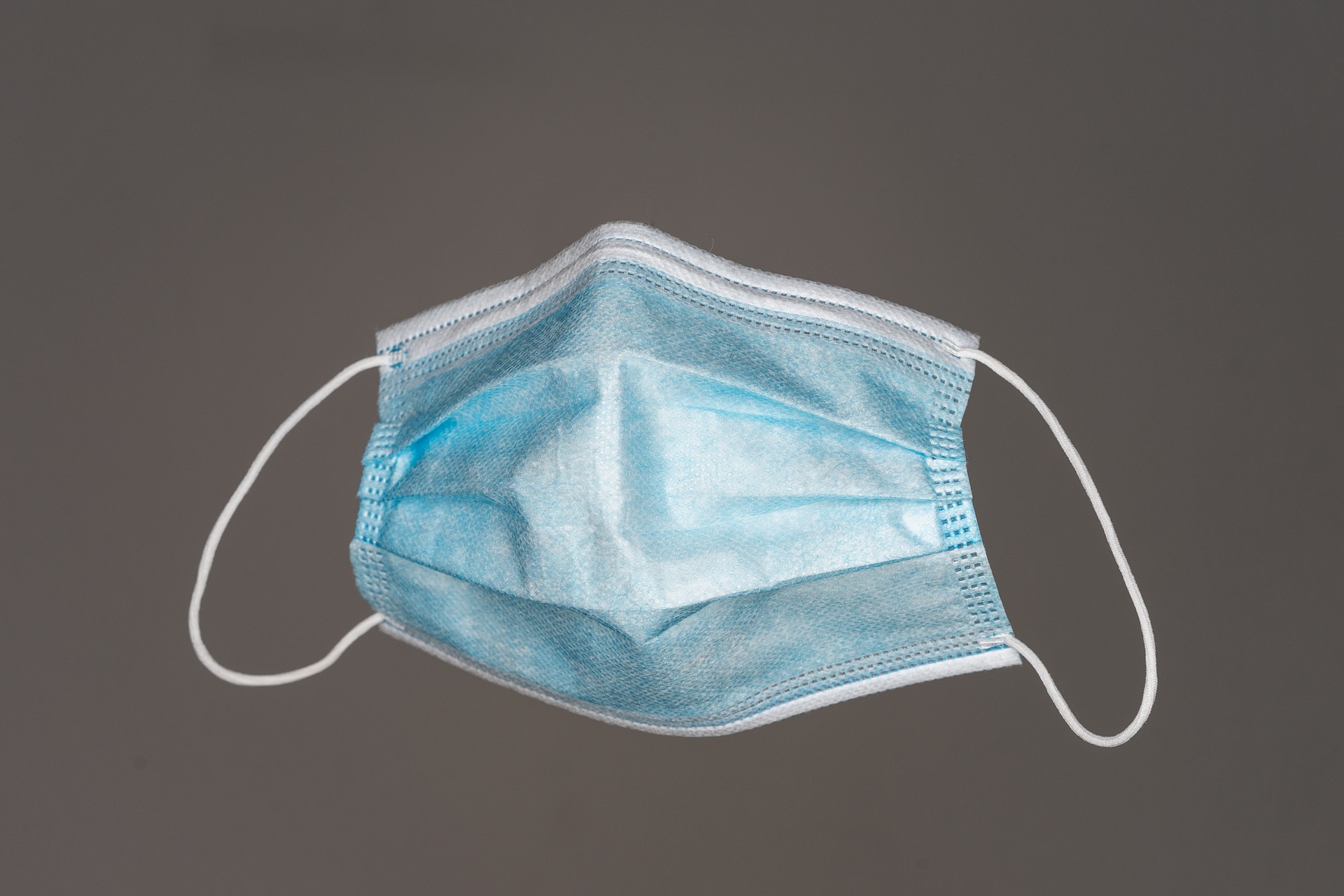
Instead of people clapping on balconies, I think Croatian healthcare workers would just prefer more general vigilance and personal responsibility – wear your mask, wash your hands regularly, no more parties in the basement. Clapping on balconies is a nice gesture, but ultimately it's an empty one.
How does it feel to know that there are some people out there, in every country, all around the world, who believe COVID is a hoax, or a plot, or not so serious, or that the vaccine is dangerous or something other than what it is?
Well, it's not always the content of the conspiracy theory that appeals to these people as much as it is their inability to accept facts – the truth – because they have little faith in the authorities that are telling them this. Here in Croatia, I think that distrust is quite high – a lot of people are disillusioned with the state and politics, because of corruption. Sometimes over 50% of the population choose not to vote. The dissemination of misinformation over social media doesn't help - if that's where people get their news from. If you look at that example from your own country, where strict measures about movement were put in place by your government, and immediately afterward, the Chief Advisor to the Prime Minister, was caught breaking them to travel across the country with his family to a second home in the countryside, going out on day trips. And he was defended by his colleagues after he was found out! When people see those kinds of things happening, the distrust between people and the authorities just grows.
All of the images in this article are used as illustrations only. None of the places or people depicted are in Croatia or Croatian, except for the first image, a panorama of Zagreb
Draft of New Measures in Croatia: Reintroduction of Passes, Max Gathering of 2 Households
December 17, 2020 – As Index.hr first reports, a draft of new measures in Croatia has been prepared, according to which all current measures should be extended, with several new restrictive measures. The new measures will be officially announced tomorrow, announced Prime Minister Andrej Plenković.
The Civil Protection Headquarters and the Government of the Republic of Croatia are currently working on the final details of the new, stricter measures that will be in force in Croatia after December 21, 2020. The draft of the new measures, which would be valid from Tuesday, December 22, includes the introduction of passes and a ban on gathering people from more than two households.
Reduction in the number of people at gatherings
New measures will prohibit leaving the place of permanent residence, which would mean the return of passes. Another restrictive measure, which, as Index reports, is a ban on gathering people from more than two households. This provision will certainly remain in the final decision on the measures, but it is not yet entirely sure in what form. Namely, there are proposals to limit gatherings to one household, but for now, it is a more likely option with two households.
The ban on cafes will remain in force, and restaurants will remain closed to guests. Cinemas and theaters will not close; neither will hairdressers and other salons. The headquarters believe that cinemas and theaters currently pose a minimal risk because they do not have many visits. Salons also remain open with the explanation that they do not pose a significant risk given the number of people in them at the same time, wearing masks and adhering to other measures.
Shops and shopping centers are regulated by another decision, which further limits the number of people inside. It is valid until January 10, and there will be no change.
An additional reduction in the number of people at gatherings is considered. However, in the ongoing conversations, the question was asked how much it makes sense because the numbers are still minimal. Gatherings take place in private spaces where the possibility of control is limited.
'The chances of introducing passes are about 70 percent'
The passes have already been included in the draft, and if there is no reversal today, this measure will also be in force after December 21, 2020. As Index learns from a reliable source, the movement restriction will apply between counties, and the City of Zagreb and Zagreb County will again be one unit, as was the case at the end of the lockdown in the first wave.
Due to the large number of passes issued in the first wave, more than a million of them, it is considered that inter-county movement should be allowed only to employees of services who need it and in rare exceptional cases.
It is also possible that a particular decision on passes, for this reason, will not be formalized immediately on Friday, but subsequently, during the weekend, when all the rules that will apply to passes would be defined.
"It will take us another six months to get all the vaccines and to vaccinate enough of the population. If we do not adhere to the measures, it is necessary to introduce formal restrictions, although there is no success in the measures without personal engagement. New measures are currently being prepared. The goal is to do everything to spend the holiday season in the most peaceful way possible. We are now fighting in terms of the clinical picture for a better January. It is necessary to reduce mobility," said Prime Minister Andrej Plenković at today's government session.
Cafes and restaurants closed until further notice
"It seems to me that the chances of introducing a ban on leaving the permanent residence, or the introduction of passes, are about 70 percent at the moment. It is tragic that some people probably think that someone's goal is to make Christmas and the holidays bitter. Restricting movement is something we are reluctant to think about, but we expect it to reduce contact, which is extremely important to us this holiday season. Otherwise, there will be a tough situation after the holidays, despite some positive developments in recent days. Something must be done to prevent the spread of the infection for the holidays. Unfortunately, the introduction of such measures is necessary because of the small number of people who do not want to abide by the appeal and the simple measures we have to endure until the end of the epidemic, which is getting closer," a well-informed interlocutor told Index.
The new measures should be valid until January 8, 2021, when passes will be abolished. Still, most other measures would be extended for another two weeks to see what consequences the holiday gatherings will have on the numbers of newly infected and consequently dead.
According to the Index's information, among the measures that would be extended beyond January 8 is the ban on working in cafes and serving guests in restaurants until further notice.
"The infection cannot spread if we do not socialize and meet others, and we do not adhere to that enough. We must give our contribution. If that were the case, we could relax the measures," Plenković said.
To read more about coronavirus in Croatia, follow TCN's dedicated page.
For the latest travel info, bookmark our main travel info article, which is updated daily.
Read the Croatian Travel Update in your language - now available in 24 languages.
New Framework of Anti-COVID Measures to be Specified This Week
ZAGREB, Dec 14, 2020 - Interior Minister Davor Bozinovic, who is at the helm of the Croatia's national coronavirus crisis management team, said on Monday that the team would hammer out a new framework of anti-COVID measures this week.
"Intensive talks are underway, consideration is given to everything," the minister told a news conference in Zagreb.
This week some concrete answers will be given to the questions what can be done to make sure that coronavirus numbers start declining, Bozinovic said announcing more precise measures, while answering the question if passes could be expected.
He said that he could understand that all would like to see the predictability of moves.
I must underscore that some countries have announced the easing of the restrictions in this period only to make them stricter. Some countries have announced tougher restrictions but eventually eased them, he said in his comment on predictability.


